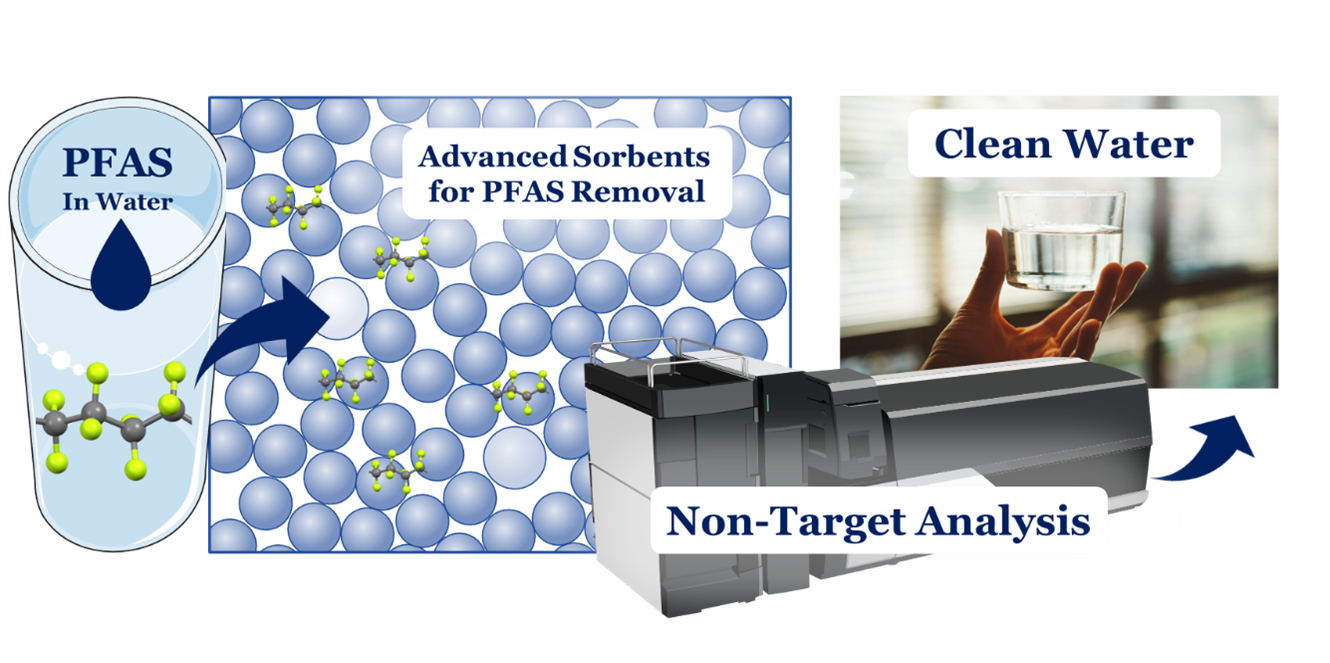This recruitment is now LIVE

PhD studentship opportunities in Environment and Health
EPSRC iCASE PhD Studentship in Environment and Health: “Forever Chemicals”: Advanced removal of poly- and perfluoroalkyl substances (PFAS) from drinking water
About the project
Applications are invited from outstanding candidates with a strong background in analytical chemistry for the PhD project entitled, “Forever Chemicals”: Advanced removal of poly- and perfluoroalkyl substances (PFAS) from drinking water”. The studentship will be based primarily within the Environmental Research Group (ERG) at Imperial’s globally leading School of Public Health. Academic supervision will be led by Drs Leon Barron and Frédéric Piel. This studentship is funded by an EPSRC Industrial Cooperative Awards in Science & Technology (iCASE) and an industrial partner, Puraffinity. The student will be expected to study at Puraffinity for a minimum period of at least 3 months during the studentship and will be offered industrial mentoring throughout the project. Both ERG and Puraffinity are based at the Imperial White City Campus.
This project aims to characterise the performance of advanced materials to facilitate the removal of large numbers of “forever chemicals” from drinking water sources. Recent concern has arisen regarding a particular class of these chemicals called, poly- and perfluoroalkyl substances (PFAS), which, as well as being very difficult to break down, they are also mobile in the environment and bioaccumulative in humans. Over 15,000 PFAS exist, with little known about many of these regarding their occurrence in drinking water or their relative human health risks. Chemical monitoring of UK drinking water targets just a small number of PFAS. Broadly applicable solutions are required to characterise and mitigate the largely unknown risks of any “hidden” toxic chemicals in drinking water. This PhD focusses on overcoming the analytical challenges associated with developing solutions for removal of so many compounds by harnessing the power of high-resolution accurate mass spectrometry (HRMS). The Imperial teams are leaders in chemical threat and hazard identification and bring significant expertise particularly in advanced analytical chemistry-based solutions for very wide chemical space characterisation in water.
The main objectives of the project are
- to develop and apply non-target analytical methods to understand the broader occurrence of PFAS and other chemicals of emerging concern in drinking water,
- to quantitatively and qualitatively evaluate advanced sorbent materials for broad-scope PFAS removal from drinking water sources and
- to develop in silico modelling approaches (including machine learning) to predict the removal behaviour of sorbents based on their chemical structure.
The student will have access to a state-of-the-art analytical instrumentation suite at ERG housing an array of different liquid- and gas chromatography-mass spectrometry instruments and work alongside a wider research team studying PFAS as part of the MRC Centre for Environment and Health (MRC-CEH). Puraffinity is a fast-growing start-up at the forefront of designing and developing advanced adsorbent technologies to remove PFAS from water across the residential, commercial, industrial, municipal and environmental services market sectors. At Puraffinity, the student will have access to a bespoke laboratory set-up for the synthesis and advanced performance testing of adsorbent materials, as well as exposure to working in a fast-paced industrial environment .
You will be an enthusiastic, creative and self-motivated individual who meets the academic requirements for enrolment for the PhD degree at Imperial College London. Knowledge and experience of the theory and application of coupled mass spectrometry-based techniques is a significant advantage. You will have clear personal goals directing your interest in and approach to research together with a strong intellect and disciplined work habits. As this will be primarily a laboratory-driven project, we expect a consistent in-person attendance on site. An interest in developing new experimental and/or modelling techniques for chemicals in the environment is essential, as are good team-working, observational and communication skills (oral and written).
To find out more about research at the MRC-CEH Imperial College London and Puraffinity in this area, go to:
www.imperial.ac.uk/school-public-health/environment-health.ac.uk/
www.imperial.ac.uk/school-public-health/environmental-research-group/
www.imperial.ac.uk/school-public-health/epidemiology-and-biostatistics/
For further details of the post, contact Dr Leon Barron (leon.barron@imperial.ac.uk). Interested applicants should send an up-to-date curriculum vitae. Suitable candidates will be required to complete an electronic application form at Imperial College London in order for their qualifications to be addressed by College Registry.
Application
The application form can be found here. It should be completed electronically and e-mailed to valentina.lotti@imperial.ac.uk with a subject line “EPSRC iCASE PhD Application MRC-CEH firstname”.
The closing date for applications is 31st October, 2024.
Successful candidates are expected to start their studentship as soon as possible and no later than 31st March, 2025.
Imperial College London is committed to equality of opportunity, to eliminating discrimination and to creating an inclusive working environment.
Eligibility
Candidates should hold, or achieve by the start of the programme, a Master’s degree in addition to a Bachelor’s degree with a UK First- or Upper Second-Class honours grade or equivalent in Chemistry, Toxicology, Materials, Environmental Science, or another related discipline.
Applications from unsuccessful candidates in previous recruitment rounds for MRC-CEH studentships will not be considered.
The studentship includes funding for Home tuition fees and a stipend of £21,237 per annum.
This studentship is only available to candidates who are eligible for home tuition fee status. Applicants from overseas will be considered if they are able to cover the studentship costs by either self-funding, other fellowship and/or through Government funding. The EPSRC terms and conditions for this studentships are available here Doctoral Training Partnerships: terms and conditions – UKRI. Please be aware of the residence eligibility for this studentship.
